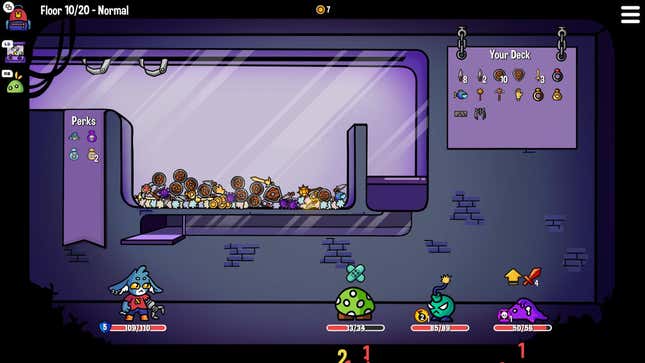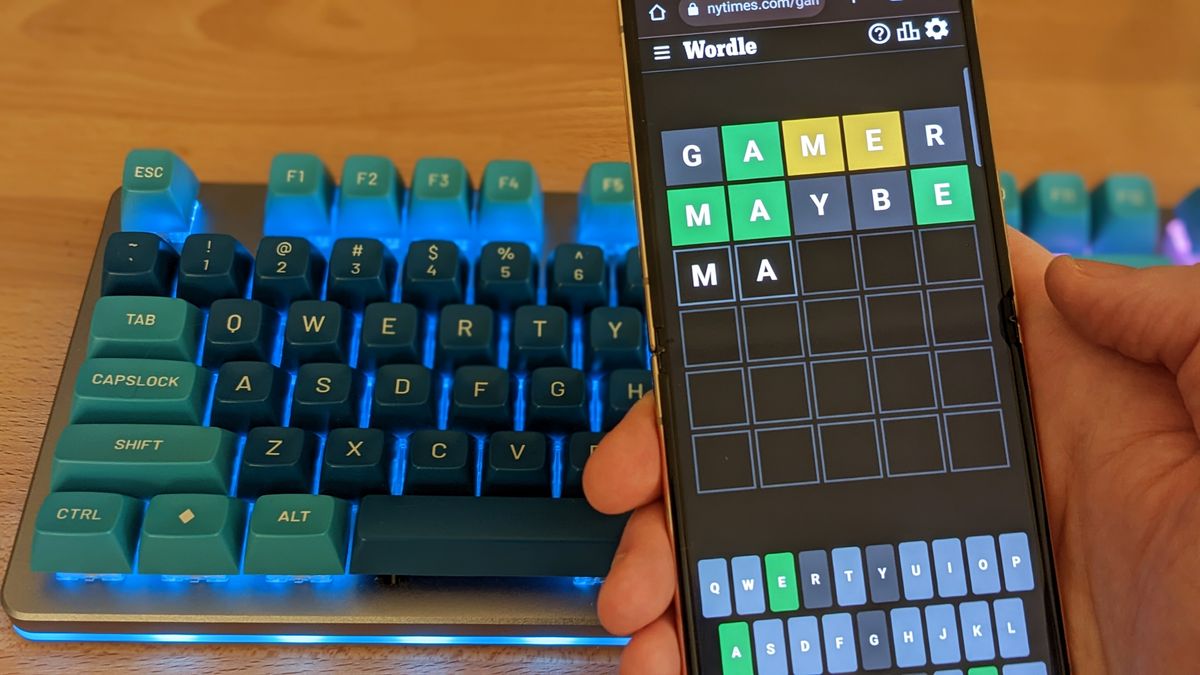I thought I’d reached a point of cynicism when it comes to Slay the Spire’s roguelite format. You can’t just take the framework and replace the cards with just anything! That’s silly. Except, no, I’m wrong, it totally works every single time, even when it’s pachinko. (Heck, does this mean Bookworm was the earlier version of Slay the Spire, but with spelling instead of cards?) Anyway, point is, turns out it also works when it’s one of those grabby claw machines. I can’t stop playing Dungeon Clawler.
What An ESRB Rating Means For Hollow Knight: Silksong
The name is an unforgivably brilliant pun, referencing how you progress through the fights against a broad range of enemies by grabbing weapons, shields, and various other power-ups via a claw machine. Each turn (usually) lets you take two grabs, with those two lots of retrieved items used to attack and defend between enemy turns. Via that Slay The Spire model, you then choose map directions, and thus enter event rooms, literal gacha machine treasure spots, upgrade shops, and many other fights.
That’s the basics, but what makes Dungeon Clawler quite so interesting—beyond the central gimmick being ridiculously hooky (pun so bloody intended)—is that the Early Access game goes to so many other involving places, with a huge pile of novel twists and ideas. For instance, there’s water, and there’s honey. If honey gets into the large container, then swords and throwing stars and golden shields and poisonous knives will all get stuck together, which is great for getting a bunch of stuff at once, but bad if it’s too heavy for the claw and you get nothing. Then water (and other liquids) can fill the tank and dissolve the glue but make items usefully float at the top, and indeed fill weapons like sponges and water pistols, which is especially good if you poison the water in there…

Buried Treasure
Buried Treasure is a site that hunts for excellent unknown games that aren’t getting noticed elsewhere. You can support the project via its Patreon.
The list of ideas continues: There are enemy attacks that cause items in the tank to get filled with kinetic energy, bouncing around to both aid and hinder, while the nastiest foes can litter your supplies with spikes and toxins that’ll deplete your health when gathered. Certain items are more powerful if gathered entirely alone, which makes you want to be more delicate with the claw, but giant handfuls of stuff at once can be a match-winner. You can upgrade items, making them more powerful, but also they can get bigger and so harder to pick up, so you’ll want to grab an ability that causes items to shrink. You can transmute items to have different material properties, such that wooden swords can become metallic and thus magnetic… And on and on and on. There are so many excellent details, letting you adjust your plans based on what you can gather, offering far more sophistication than the initial simple premise suggests.
So much of this is thanks to the excellent physics. They exude fairness, items flinging and clattering around in a way that makes natural sense, meaning you can have really good instincts about where to drop the claw, and when to close the pincers—and indeed why something might slip out or fly off, without feeling like you’ve been cheated.

Screenshot: Stray Fawn Studio / Kotaku
Right now, weeks into its Early Access, it already feels incredibly complete. However, there’s a good amount of balancing that needs doing. There are all manner of characters to play as, with unique starting conditions—bonus shield at the cost of health, for instance, or water-based skills for the loss of other abilities—and they unlock quickly and encourage experimentation, but pretty much all of them can hit the same brick wall of a particular enemy type. There’s one foe who doubles his damage each turn, and so without a particularly aggressive build, it’s pretty much game over if you encounter him too early; there’s just little chance you have shields at a point where you can cope. That sucks. He’s not alone in terms of being too OP, too early in a run, which is disappointing.
Yet, I play again. And again. And again. Unlike real-world claw machines, which are essentially a con designed to make small children miserable, here it’s a far more rewarding experience. The claws are weak, and so won’t hold a massive pile of large items, and they do swing wildly such that many an item will fly off as it lurches to the dropping area. But it’s not fixed, and there’s a strong sense of skill as well as luck in what you gather.
With a bit of tweaking to difficulty, it’d be hard to fault Dungeon Clawler. It absolutely mimics a million games that came before it, but the combination of a unique mechanic and so many interesting innovations of its own within the format means a game I figured would be just “that idea but with a claw machine” (which sounded good to me!) is actually something far more rounded, involving, and interesting in its own right. I just need to figure out how to stop playing. (Oh god, no, now I’m installing it on my phone…)
This article originally appeared on Buried Treasure, a site dedicated to unearthing lesser-known indie games. You can support the project via Patreon.









 English (US) ·
English (US) ·